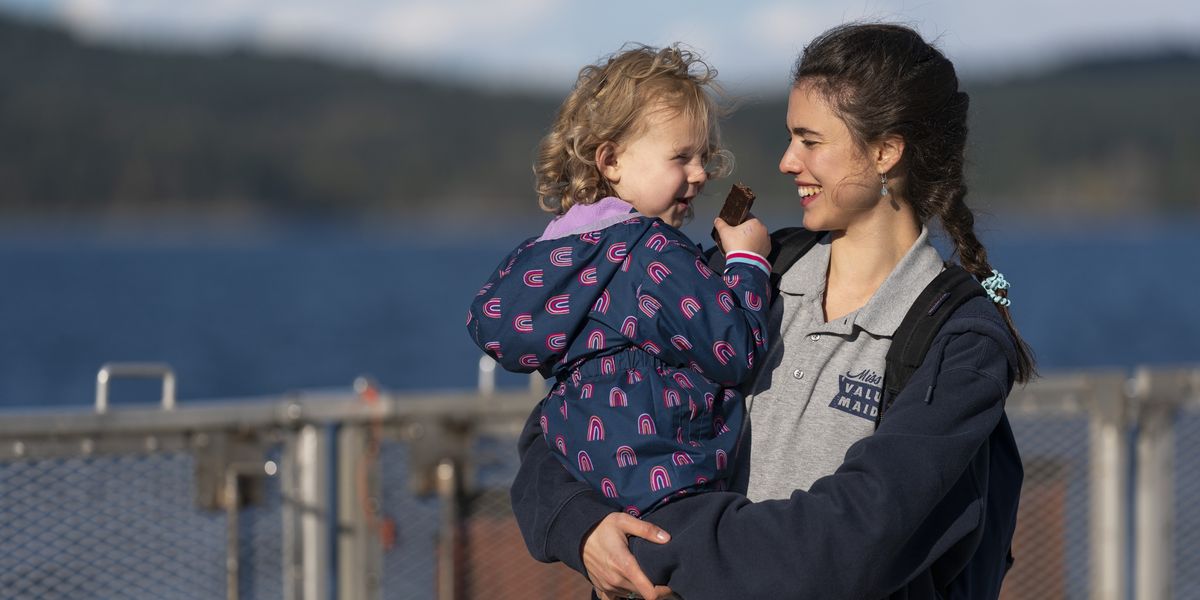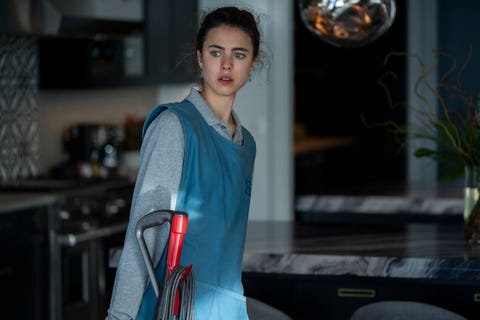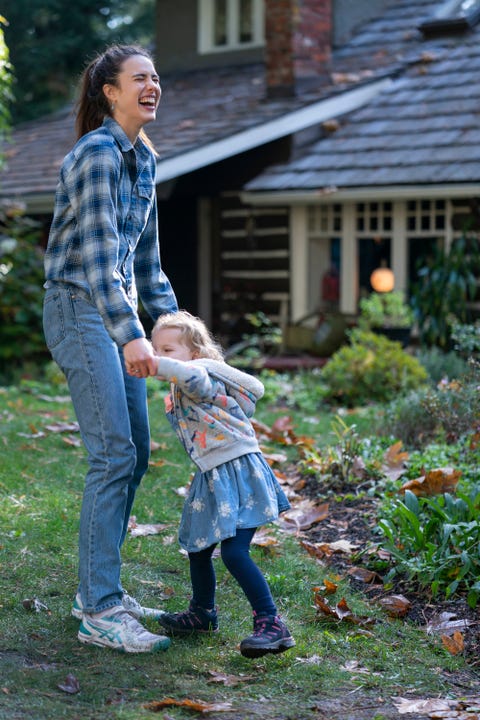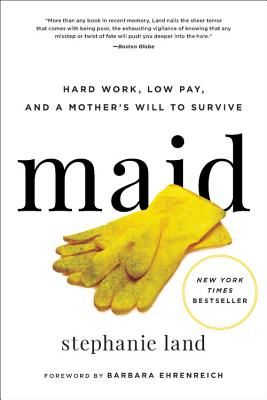In Maid, Netflix’s new series about a young mother trying to escape abuse and extreme poverty, Margaret Qualley delivers a tour-de-force performance as the titular character Alex Langley, a woman beaten down by life and the indignities of the U.S. welfare system. Even while dressed down in ratty clothes and cleaning rich people’s homes, though, Qualley—who both in Maid and in real life is the daughter of Hollywood icon Andie MacDowell—has an irrepressible radiance that no amount of hyperrealist makeup can fully erase. Indeed, the fact that the slim, beautiful actress doesn’t exactly look like the sort of person who would be in Alex’s position is perhaps the only false note in her career-making gig.
Then again, maybe it’s Qualley’s charm that makes it easy to believe a happy ending is in store for Alex, despite the many cards stacked against her. Maid the series is based on Maid the memoir, whose author Stephanie Land managed to beat the odds and secure a better life for herself and her daughter. But Land’s trajectory is far from the norm. According to the Urban Institute, poor individuals have a one-in-three chance on average of exiting poverty in any given year; the rate is even lower for households headed by women and individuals with decreased education levels, both of which apply to Qualley’s Alex.
For her part, Qualley portrays Alex’s journey with such a compassionate and delicate touch that even the viewers farthest removed from poverty cannot help but empathize with her. In that respect, and largely due to Qualley, the show is a resounding success. That should make her very proud—and in talking with Qualley, it’s abundantly clear that she takes very seriously the responsibility of doing right by Alex’s story. Here, the actress discusses the show, the experience of working with her mother, and the bond she formed with Rylea Nevaeh Whittet, the child who plays Alex’s three-year-old daughter Maddy.
I think part of why this show strikes a chord is because Alex isn’t the sort of person who seems like she’d end up in this situation: She’s young and pretty and straight and white—all things that set her apart from the implicit assumptions that we make about people in poverty.
Yeah. It’s more challenging to “other” Alex in this circumstance because of those reasons. To speak to that, I think that the reasons you’re saying are probably the reasons that she was able to get out, because a lot of people in these exact same circumstances get stuck there. You know, Stephanie Land now has a bestselling memoir, but all those reasons why she isn’t the person that you generally think of as being in this situation are probably also the reasons why she isn’t in this situation anymore. It could happen to anybody, and she was dealt a shit hand, but at the same time—despite the fact that she was smart and persevering—she got out for what are likely the reasons that you just named.
You came aboard the show pretty early on. How did you get involved?
I read the script, and I was just really taken aback by it, and then I immediately read the memoir. It’d been in my periphery: I’d heard of it, but I hadn’t read it, and this was the final cherry on top of, like, “You gotta read this book.” And then I flew through it. It’s painful but propelling. And it just was an opportunity I couldn’t pass up.
What did you to do prepare for the role of Alex?
For me the primary point of entry was Rylea, the four-year-old who plays my daughter. That seemed like the biggest hurdle to get over. When you’re talking to an actor, you can map out, like, “Alright, this is what our relationship’s gonna be like, and we agree upon this, so I’ll hug you like this, you’ll do this, everything’s great, cool.” But with a four-year-old you have to earn that, and so I had to spend a lot of time with her to make it so that she felt safe and cozy in my arms. And she’s a real angel, so I had a blast doing that.
On the flip side, you had your actual mom playing Alex’s mother Paula. What was that like, and was it hard to play out such a toxic relationship with her?
I mean, with my mom, we both know we’re just playing pretend. I just felt so lucky to have her there ‘cause she’s such an incredible actor. Having the opportunity to share a scene with her was surreal and exciting, and I was honored that she said yes to doing the part.
This wasn’t your first time working with Nick [Robinson, who plays Alex’s abusive ex Sean]. I imagine that made it easier to navigate that relationship with his character, having someone you trusted there.
Totally. I love working with people that I’ve worked with before. I’m always trying to just like build a family and move around and work with my friends; it’s really nice when you have a familiarity there. I think one of the reasons why casting Nick was so great for Sean was that he’s a really easy person to love. He just seems really sweet, so Paula loves him, and Alex’s dad loves him, and you understand what is enticing about Sean for her. It’s not easy to pin him as being an abuser.
The show is about Alex, but it’s also about the brutal experience of extreme poverty and domestic abuse. How familiar were you with the topics that were tackled in this series, and how did working on the show change your outlook?
I mean, this is a life entirely dissimilar from mine. You were just talking about my mom—like, my mom is my mom. I grew up privileged. I certainly, certainly did, and playing a part like Alex only highlights that more. It makes you really take stock in just how incredibly lucky you are every day. I’m learning in real time that even for somebody in this circumstance, it’s challenging to figure out how to wrap your mind around how to get out of it, you know? Those scenes between Alex and Jodi in the social services office—it’s mind-boggling. It’s like, right when you think you understand it, there’s another hoop to jump through, there’s another corner that you have to go around. It’s designed for you to fail.
What do you hope is the key takeaway audiences get out of this?
I hope everyone has their own unique experience with it. For me, the thing that resonated the most was the exploration of mother-daughter relationships. I’ll certainly take away with me forever the experience of working with my mom, and Rylea, too. It was the kind of thing that will be with me for life.
This interview has been edited and condensed for clarity.
This content is created and maintained by a third party, and imported onto this page to help users provide their email addresses. You may be able to find more information about this and similar content at piano.io



